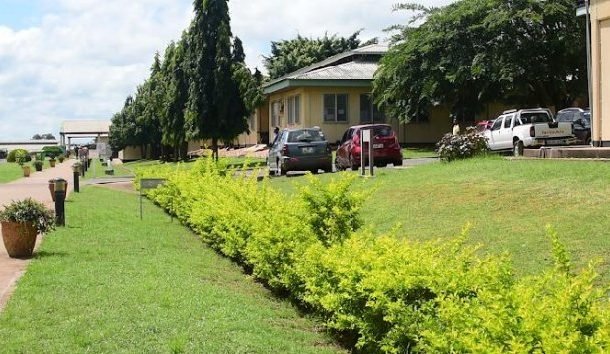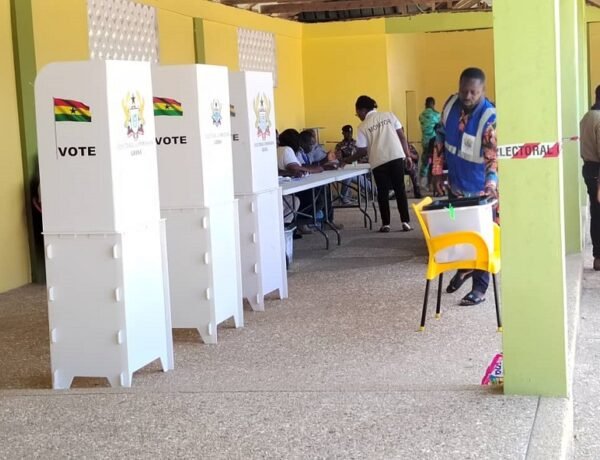The Recognition of the Right to a Clean, Healthy and Sustainable Environment: What is in it for Ghana?
Kofi Ofori
Introduction
In October 2021, the UN Human Rights Council (UNHRC), adopted Resolution 48/13(the resolution), recognising that the “right to a safe, clean, healthy, and sustainable environment is a human right that is important to the enjoyment of other human rights.” Among its core tenets, the resolution urges states parties of the United Nations (UN) of which Ghana is a member, to adopt legislations, political and socio-economic policies as well as collaborate with multinational organisations, to promote and protect the environment for the health and wellbeing of all humanity, including biological diversity. As a political strategy to promote the acceptance of the resolution among the international community, the core group of countries comprising Costa Rica, Maldives, Morocco, Slovenia, and Switzerland, on 21st June 2022, introduced a draft resolution for UN General Assembly recognition of the right to a clean, healthy, and sustainable environment. Against that premise, this blog focuses on the operative paragraph three of the draft resolution by examining what Ghana needs to do in promoting the right so as to enhance the people’s wellbeing and development.
Ghana’s obligation under the draft resolution
The view that human activity within one jurisdiction has a contiguous relationship and impact on the lives, health and environment in another country as well as the international community, requires of Ghana to critically revise existing legislations to deal with the harmful and destructive practices of the environment. For example, the rapid depletion of forest reserves, destruction of biological diversity and pollution of rivers bodies threaten the existence and livelihood of citizens and the country; and consequently, thwart the right to a clean and sustainable environment. Although principle 21 of the UN. Doc. A/CONF. 48/14/Rev.1, adopted on 16 June 1972, “expresses the right of every State to Sovereignty over its own resources, but balances this with the duty to ensure that activities under its jurisdiction or control do not cause any damage to the environment of other states or of areas outside the borders of national jurisdiction.” Undoubtedly, Principle 21 relates to transboundary effects of environmental damage to other states, but also focuses on the duty of national governments to deploy judiciously their natural resources for the wellbeing of the governed without jeopardising the right of future generations. Furthermore, the obligation being echoed in the draft resolution by the core group of state, challenges states parties especially Ghana, to amend aspects of its Minerals and Mining Act (2006) in order to include substantive provisions that criminalise, prosecute and sentence to prison terms persons/entities who engage in illegal activities, detrimental to the environment.
Another instance in which Ghana can contribute towards the realisation of the right to a clean, healthy and sustainable environment, is to substantively implement the access to information provisions in the Minerals and Mining Act (2006) by gendering active participation of indigenous people, civil society as well as non-governmental organisations (NGOs) whose interests and livelihood are adversely impacted by the harmful mining and exploratory activities in the country. Malgosia Fitzmaurice (2006) writes in –Participation of Civil Society in Environmental Matter-: that “the Aarhus Convention is a new kind of environmental agreement. It links environmental rights and human rights. It acknowledges that we owe an obligation to future generations (http://www.unece.org/env/pp/). … ‘[r]ecognizing also that every person has the right to live in an environment adequate to his or her health and well-being, and the duty, both individually and in association with others, to protect and improve the environment for the benefit of present and future generations.” The implication of this statement for Ghana, is to provide relevant, timely and accurate information to educate the indigenous peoples and rural communities about their human rights to a healthy environment including measures to seek justice for violations relating to environmental degradation and destruction of biological diversity. Also, the draft resolution introduces accountability of governments, particularly of Ghana’s leadership for environmental protection. It also presupposes the existence of a democratic society where civil society is one of the stakeholders in adopting of environmental decisions and their implementation with a view to safeguard communal wellbeing. Furthermore, since entitlements emanating from environmental litigations are largely glossed over by the Ghanaian judiciary because of the people’s poor social status, coupled with limited funding to mount effective litigation; the state of Ghana should ensure effective access to judicial and administrative proceedings, including redress and remedy in safeguarding the environment and the people’s health.
Moreover, one limb of the draft resolution is the need for states parties of the UN, including Ghana, to work with multinational corporations (MNCs) to minimise or eradicate the destructive impact of the environment on humanity. In Beharry and Kuritzky (2015:387), Going Green: Managing the Environment through International Investment Arbitration: “states are obliged to protect people and the environment from harm, and promote foreign investment, often conflicts. This resonates with developing countries’ policy to attract foreign investment with inability to minimise ‘regulatory chill’. ‘Regulatory chill’ thus means the weakened status of environmental regulations of a country to impose sanctions as well as curb illegal activities of foreign investors that are detrimental to a country’s prosperity. The regulatory chill may also be a consequence of the threat of heavy compensation claims and the financial burden these claims pose to the host states. An illustration of such regulatory chill occurred at Appiatse in the western region of Ghana where the state failed to exact adequate compensation for those maimed and died during an explosion by mining firm called, MAXAM. The failure by the Ghanaian government to hold MAXAM, the offending corporation, severally responsible for the deaths and the consequent environmental destructions is a classic reference of weakened political leadership. Thus, ‘Hundreds wail as Appiatse victims are laid to rest’, represents two aspects of Ghana’s obligations to ensure the realisation of the right to a clean and healthy environment. First, the duty to monitor the operations of international organisations to avert environmental hazards to humanity and society. Second, the willingness to exercise political-power to hold accountable MNCs engaged in illegal exploratory activities, which are damaging to the environment. The above failings present new opportunities for the government to examine existing legislations, regulations and policies so as to stem environmental crisis within the mining communities and the country at large.
A very critical element of the draft resolution is the invitation of all sates parties to work towards the achievement of integral sustainable development within spheres of national agenda. Since the environment is at the core of every political, social, economic and cultural development, Ghana needs to draw on the creative knowledge, expertise and resources of all public servants, private organisations, civil society including indigenous people, to contribute ideas of producing national policies that seek to protect the environment, biological diversity as well improve climate change. One strategy by which Ghana can achieve this is through the promotion of substantive social justice across the spectrum of the Ghanaian society. With reference to the UN Social Progress and Development UN Doc.GA. res. 2542 (XXIV), 11 December (1969), substantive social justice encompasses active, practical and relevant socio-economic programmes, which are specifically implemented by states with a view to alleviate poverty-stricken communities from harsh and inhumane conditions that confine them to the fringes of society. Furthermore, the government should collaborate with domestic and international organisations especially respective UN organs, to find practical solutions in reducing or eliminating dire poverty among poor communities of the country where illegal and destructive activities to the environment are prevalent. Closely related to achieving social justice for protecting the environment is the duty of the state to safeguard the environment for future generations. This means development that meets the needs of the present generation without compromising the ability of future generations to meet their own needs. As evidenced in article 257 (6) of the 1992 Constitution of the Republic of Ghana, all natural resources, including mineral resources, aquatic life, forests, sea, land and the continental shelf shall be “vested in the president for and on behalf of, and in trust for the people of Ghana.” This constitutional provision obliges the President as a trustee not only of the present generation but also of future generations to uphold, manage and protect the resources of the country including the environment, responsibly.
Concluding Remarks
The achievement of the right to a clean, healthy and sustainable environment is an obligation of Ghana’s government and its citizens, requiring adequate information and participation of all citizens especially affected communities, to protect and manage the natural resources within their regions with the support of the state. The right to a clean and healthy environment also demands justice for all and the vulnerable communities in which government’s failure to monitor the exploratory activities of mining firms had resulted in pollution and serious injuries to the people. Lastly, the right to a clean and healthy environment promotes sustainable realisation of other human rights, including the right to clean water and development.





No Comments